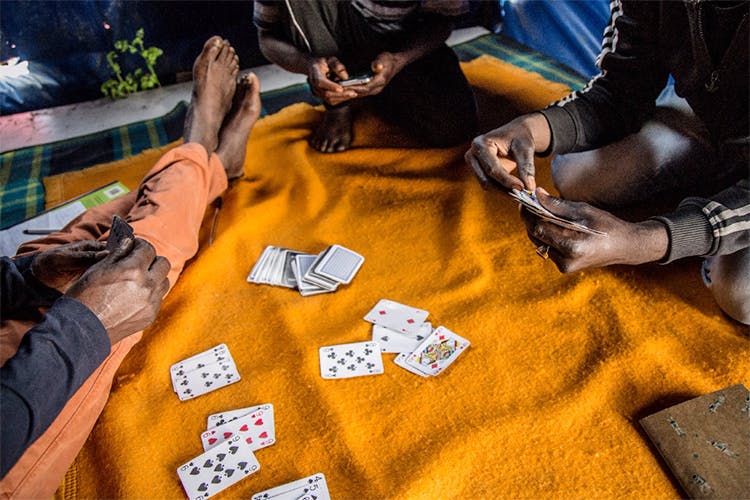Editor’s Note
With Project FUEL, Deepak Ramola {and team} aim to collect life lessons from people all over the world and turn them into interactive and performance activities, to pass on the learnings. Catch Deepak Ramola speak at Josh Talks: LEAP conference on October 22nd & 23rd at Thyagaraj Stadium.
Words by: Deepak Ramola
I recently returned from a 90-days tour across Europe aimed at documenting life lessons of refugees, and study tools of their integration.
In the third edition of Project FUEL’s once-a-year-exclusive program, The Masterpiece Tour, we collected life lessons from people affected by the recent migration that was primarily driven by the conflict in Syria. We reached out to refugees as well as citizens of countries that have provided asylum to them. A team of four travelled to Sweden, the Netherlands, Germany, France and Hungary.
While each of the five countries we visited has a diverse perspective and acceptance towards the refugees, we had a particularly intense experience in the Calais camp. It is an illegal camp that hosts around seven thousand refugees {predominantly men} in the port city of France. In spite of the many restrictions to film or photograph in the camp, our brilliant photographer, Vibhor Yadav, managed to gain trust of the people to capture some images of their daily activities.
Life in a refugee camp, contrary to popular belief, can find ways to keep hope alive. Of course, the situation on the ground is pretty bad, but it’s never a good enough excuse to shove out kindness and practice hate. We are so grateful to all our friends from 15 different nationalities living in the Calais camp for being compassionate and caring towards four Indians and their curiosity.
If you go to someone’s tent in the camp, you cannot leave without having tea or coffee. There were days when we would have had 17 cups of tea before lunchtime, as we’d have met so many people in such a small duration. Their hospitality is on point despite the limited means.
People gather together every evening to watch movies in the camp. Bollywood films are a big hit and are replayed on popular demand. We were welcomed with open arms, because we could sing the Indian movie songs they had memorised or heard on TV.
Personal belongings are a source of comfort and joy for every refugee. These are the things they managed to get with them to the new homeland from the previous one. They have so many emotions attached to the last souvenirs of their life back home.
If you’re accepted by the community, you will be treated as a family member. In this picture, the hand you see is of an Afghan refugee who is the owner of a small bakery inside the camp. Concerned with the warm air inside the shop due to the tandoor, he removed the glass panes to ensure our comfort in his space. Amidst feeding thousands of men, for him to pay attention to such a small detail was heartwarming on many levels.
A game of cards is a good pass time. The men usually sleep or play during the day and try to smuggle themselves in trucks to the U.K. at night. Vibhor and I surely picked up some skills while participating in these games.
Conversations fuel the refugee camp through and through. You can sit with anyone and get to know his or her story by having an open-minded conversation. There were days when we would enter a tent and would only return after five hours. The only way to heal their pain is to allow them to talk about it.

